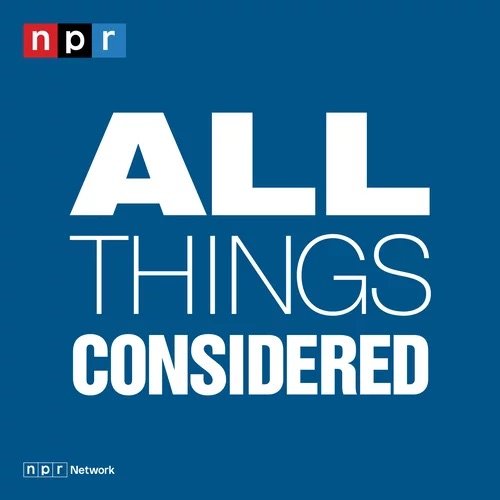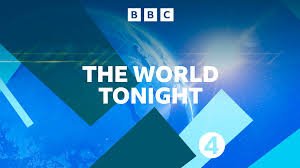By NAMJU CHO
In a March story that followed the news of North Korea agreeing to suspend its nuclear weapons program in exchange for U.S. food aid, the Associated Press quoted 43-year-old Jong Yun Hui as saying, “I heard the news, but I’m not very excited.” The news agency also gleaned a reaction from O Myong Ok, 38, who expressed how “wonderful” it would be to ease tensions on the peninsula, but also said, “I don’t believe that will happen.”
Such sentiments would be commonplace coming from citizens of Seoul, but these “man on the street” comments came instead from Pyongyang residents—something rarely captured in news stories out of North Korea and the result of a landmark agreement that has allowed AP writers and photojournalists to work in the country on a regular basis.
On Jan. 16, AP became the first Western news organization to operate a text, photo and video bureau with full-time staff in North Korea.
At the center of the intense negotiations to make this deal happen was Jean H. Lee, a 42-year-old Korean American journalist and 17-year veteran of AP. The chief of AP’s Seoul bureau since 2008, she is now the AP Korea bureau chief, also running the newly opened Pyongyang bureau and traveling regularly between North and South Korea, which remain technically at war.
Along with photo editor David Guttenfelder from AP’s Tokyo bureau, Lee is at the forefront of the news agency’s charge to document the people, places and politics of North Korea, which has been largely closed to international journalists. Just weeks after longtime leader Kim Jong-il’s death, Lee joined officials from AP and Pyongyang for a ceremony inaugurating the new office, which is located inside the headquarters of the state-run Korean Central News Agency in downtown Pyongyang.
In her first in-depth interview since the bureau opened, Lee tells KoreAm what it’s been like working with her North Korean reporting staff, responds to concerns over censorship, and shares personal insights on a people and culture little known to outsiders.
How many trips have you made to North Korea?
I’ve made 10 trips since March 2011, when I first went with AP Chief Executive Officer Tom Curley and a delegation exactly a year ago. It was AP’s first high-level trip to North Korea. I still remember because the day we left was the day of the tsunami in Japan.
Why now? What was the impetus behind opening a bureau in North Korea at this time?
It was a big passion project of [CEO Curley]. When I took the post [of Seoul bureau chief], my boss in Bangkok told me that opening a Pyongyang bureau should be my mission. I remember thinking it was an impossible task. I’ve always had it in mind, but in 2008 and 2009, planning was just not right. In 2010, things started changing. We saw an opportunity to reach out. We’d had an AP Television News office there since 2006, so we’ve had a relationship.
What do you hope to achieve with the opening of this bureau?
I’d like to shed light on a country that’s so closed off from the West and that we know so little about. … I don’t have an agenda. What I hope is to have an office that combines all formats—TV and print, like any other office in the world. [I’d like] an office with international correspondents based in Pyongyang working alongside local reporters, photographers and cameramen.
What can you tell us about your North Korean staff at the Pyongyang bureau?
There are two North Korean reporters (not including three existing North Korean staff at APTN). We’re familiar with the photographer Kim Kwang Hyon, who has worked at the Korea Central News Agency, the country’s official news agency, in the past. He was most recently working for Kyodo News (a Japanese news agency). He was trained as a journalist and has also been working as a photographer. He took part in an AP photo workshop. He’s a veteran journalist and is in charge of the bureau [while I’m away]. [The other reporter,] Park Won Il, is a bright, young journalist. He’s a trained video journalist from KCNA video operations but is focused on print for now. He has spent some time abroad and graduated from a foreign language university in North Korea.
What was it like training them according to AP’s standards of journalism?
Our concepts of journalism are complete polar opposites. Discussions at the bureau are very interesting—probably the most candid that Americans and North Koreans can have. Last month’s coverage has shown they’re picking up on what’s interesting [for our readers]. For instance, after the nuclear disarmament agreement, we talked about going out to get vox populi (“voice of the people” interviews). They don’t typically do, but we like to hear what the average person thinks. We discussed what kinds of questions to ask.
With the photographer, we spent time training how to capture daily life photos and explained that we know so little about their lives and world that any aspect of their daily lives is interesting. Our photographer came back with a photo of a violist opening up a viola case that had a picture of her son inside her case.
Have the reporters ever refused to cover something?
No.
Has KCNA ever tried to pitch a story to you, either blatantly or subtly?
No.
Residents on a sidewalk in Pyongyang. Photo by Mark Edward Harris
How do you respond to concerns about censorship and propaganda?
We’ve communicated our standards of journalism and won’t compromise. We will adhere to AP standards. The North Korean government doesn’t screen anything we write. They give feedback and complain sometimes. For instance, a North Korean journalist at KCNA asked why we used the word “communist” in reference to North Korea in our stories as the word is no longer in their constitution. He gave me a copy of the constitution that called the country “socialist.”
I was also asked why we call the country “North Korea” as opposed to “Democratic People’s Republic of Korea” (as the country officially calls itself). I tried to explain there’s nothing offensive about calling it North Korea. I find that about South Koreans, too. [They would say,] “Call it Korea, not South Korea.” There are so many similarities between North Koreans and South Koreans about how they think about their own countries.
My goal is to report objectively and attribute everything I report. It’s an important distinction because [the Western media has previously] written about North Korea as though [North Koreans will] never read it or respond. We treat them with respect as we treat other sources in other countries. We apply the same standards in North Korea as in South Korea. We’re raising the bar because the Western media often lose sight of standards when covering North Korea.
How closely do you think you’re monitored when you’re there?
We don’t know how closely we’re monitored. It’s safe to assume there’s a certain amount of monitoring in that country, … which is typical to foreigners in North Korea. But given the amount of time we’ve spent there, we have a certain amount of leeway that other visitors don’t. We have access and also a certain amount of freedom unusual for foreign visitors.
We’re still journalists. Everybody is wary of journalists. We are understanding and respectful of the fact that we don’t have total access or total freedom. But I can say access is far greater than access granted to any Western reporter.
Are you able to go out without minders?
We usually use a minder when on assignment. One of them is a translator. [We’re usually] accompanied by an interpreter and a North Korean journalist. A KCNA journalist makes our arrangements. The [KCNA] news assistant is working for us until I can get a news assistant. When I go out, I go with someone because I don’t have my own transportation. But we’re not attached at the hip.
Do you and the local reporters have access to Internet in the office?
We’re working on that.
Would you say this is the toughest post in your career?
It’s the toughest assignment I’ve ever had. It’s definitely challenging on an emotional, intellectual and physical level. It’s not covering a war, but it’s very demanding as you have to be on your toes all the time. It’s exhausting and, diplomatically, the stakes are pretty high. Expectations are high. I have a lot of critics to answer to.
What is the toughest part of being Pyongyang bureau chief?
There is almost no reliable information. The country hasn’t published government statistics since the 1960s. Every story requires an incredible amount of research and fact-checking because there aren’t reliable sources to consult. I try to confirm things within North Korea. There are stories I’d like to write, but have to gain access to information. I try to rely on sources that have access on the ground. South Koreans haven’t had any access for the past four years. Western sources and experts don’t speak Korean. We’re just starting to see Korean-speaking, Korean American academics and policy/government folks who may have a different understanding of the country. [One source,] the United Nations, has large operations on the ground. For economic numbers, I rely on trading partners like China that publishes statistics on trade.
What were some of your biggest surprises?
I didn’t expect to see children’s clothes with imprints of Snoopy, Speed Racer, Mickey and Minnie Mouse and Hello Kitty at a shopping center in Pyongyang—so many American characters from my childhood. I explained to a North Korean reporter who Snoopy was. “A sophisticated beagle …”
Do you have any local haunts you frequent?
I really like the Taedonggang Brewery Restaurant. True locals rip apart dried fish [to have with their drink]. I prefer to order potato chips. It’s a pub. I like walking around the Taedong River. It’s fairly peaceful.
You said that in some very intrinsic ways, North Koreans are very similar to South Koreans in terms of humor and wit. Can you give an example?
When leaving Pyongyang, we have to show our IDs. The KCNA journalist we were traveling with was handing over the passes to security, who barely looked at them and gave them back. [Handing back the IDs to Lee, the journalist quipped,] “I don’t think they needed to see them, they just wanted to touch them.”
North Koreans also tend to be very affectionate. This gets missed by foreigners in North Korea because they don’t speak Korean. I find that when I’m with them, because I understand Korean, I catch all of that.
When will North Korea grant AP an exclusive with Kim Jong-un?
We have requested an interview with Kim Jong-un, but have no idea when it will happen. I have been in the same venue as him several times. It would be interesting to meet him firsthand and see how comfortable he is in this role up-close.





















